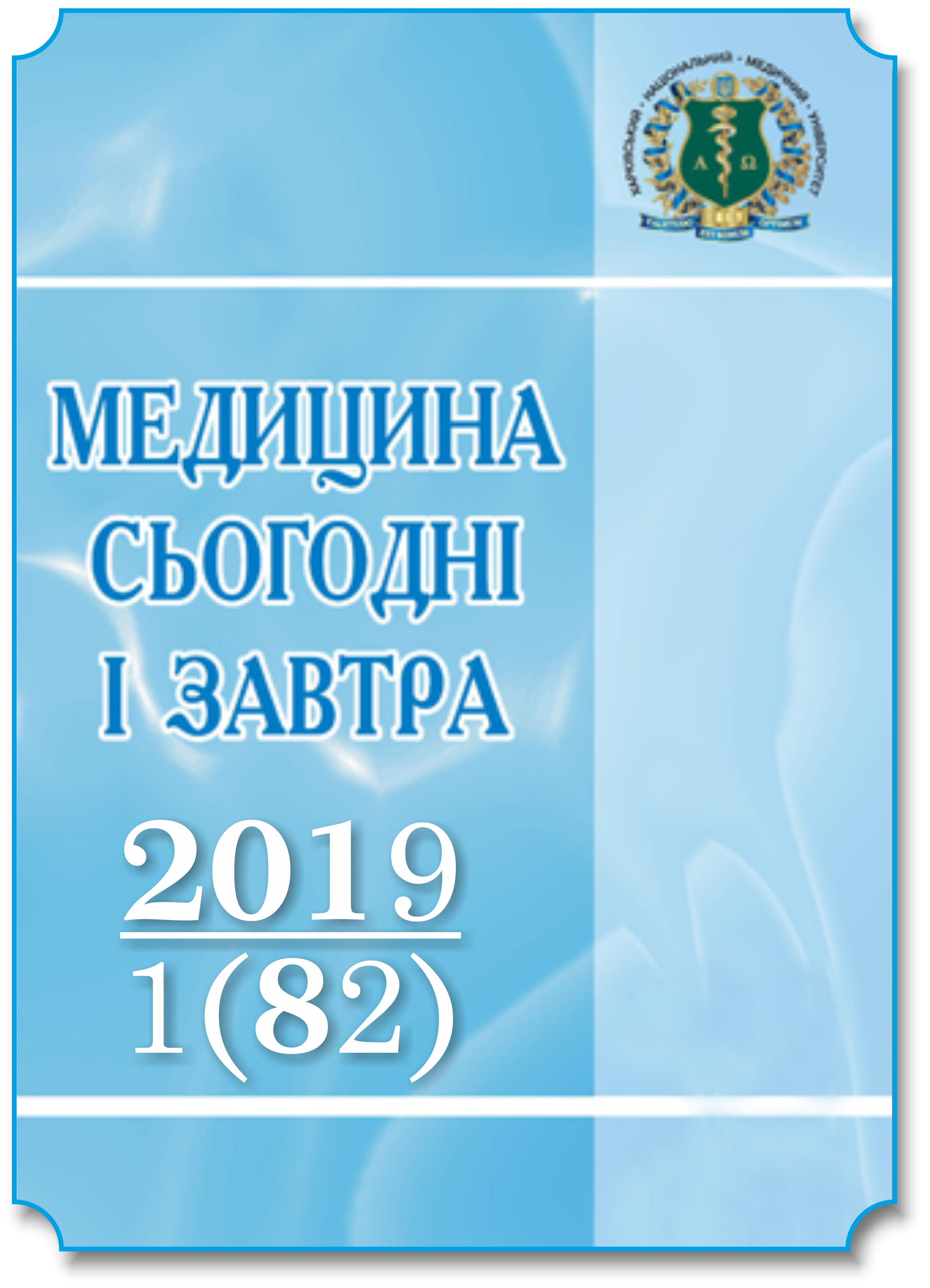Abstract
The review is devoted to an actual research problem such as a chronic inflammation associated with obesity, diabetes mellitus type 2 and cardiovascular risk. As far as inflammation plays a role of pathologic mediator in these comorbid states, there are several attempts to influence on a chronic inflammatory process with medications for reduction of cardiovascular atherosclerotic disease risk are being done. It is related to some pathogenic signal mechanisms initiated and supported inflammation as well as involved it to the development of insulin resistance and atherogenesis. Methods of pharmacological interventions with a directly target inflammation (salicylates, low-dose methotrexate, anti-inflammatory drugs) and other therapeutic measures with an anti-inflammatory effect (antileukotriene therapy) in the context of their effect on cardiometabolic risk are considered.
References
Riabukha V.V. (2018). Khronichne zapalennia, asotsiiovane z ozhyrinniam, tsukrovym diabetom 2-ho typu ta kardiovaskuliarnym ryzykom, yak mishen dlia terapevtychnykh vtruchan. Chastyna 1 [Chronic inflammation associated with obesity, diabetes mellitus type 2 and cardiovascular risk as a target for therapeutic interventions. Part 1]. Medytsyna sohodni i zavtra – Medicine Today and Tomorrow, vol. 81, № 4, pp. 44–50 [in Ukrainian].
Nohria A., Kinlay S., Buck J.S., Redline W., Copeland-Halperin R., Kim S., Beckman J.A. (2014). The effect of salsalate therapy on endothelial function in a broad range of subjects. J. Amer. Heart Assoc., vol. 3, № 1, e000609.
Hauser T.H., Salastekar N., Schaefer E.J., Desai T., Fowler K.M., Weber G.M. et al. (2016). Effect of targeting inflammation with salsalate: The TINSAL-CVD randomized clinical trial on progression of coronary plaque in overweight and obese patients using statins. JAMA Cardiol., vol. 1, № 4, pp. 413–423.
Penesova A., Koska J., Ortega E., Bunt J.C., Bogardus C., de Courten B. (2015). Salsalate has no effect on insulin secretion but decreases insulin clearance: a randomized, placebo-controlled trial in subjects without diabetes. Diabetes Obese Metab., vol. 17, № 6, pp. 608–612.
Goldfine A.B., Shoelson S.E. (2017). Therapeutic approaches targeting inflammation for diabetes and associated cardiovascular risk. J. Clin. Invest., vol. 127, № 1, pp. 83–93.
Pirkmajer S., Kulkami C.P., Tom R.Z., Ross F.A., Hawley S.A., Hardie D.G. et al. (2015). Methotrexate promotes glucose uptake and lipid oxidation in skeletal muscle via AMPK activation. Diabetes, vol. 64, № 2, pp. 360–369.
Rotte M.C., de Jong P.H., den Boer E., Pluijm S.M., Ozean B., Weel A.E. et al. (2014). Effect of methotrexate use and erythrocyte methotrexate polyglutamate on glycosylated hemoglobin in rheumatoid arthritis. Arthritis Rheumatol., vol. 66, № 8, pp. 2026–2036.
Dinarello C.A., van der Meer J.W. (2013). Treating inflammation by blocking interleukin-1 in humans. Semin. Immunol., vol. 25, № 6, pp. 469–484.
Van Popper P.C.M., Van Asseldonk E.V.A., Netea M.G., Tack C.J. (2013). The interleukin-1 receptor antagonist anakinra improves beta cell function in subjects with impaired glucose tolerance. Proceeding from 49th Annual Meeting of the European Association for the Study of Diabetes, abstract 739.
Cavelti-Weder C., Babians-Bruner A., Keller C., Stahel M.A., Kurz-Levin M., Zayed H. et al. (2012). Effects of gevokizumab on glycemia and inflammatory markers in type 2 diabetes. Diabetes Care, vol. 35, № 8, pp. 1654–1662.
Sloan-Lancaster J., Abu Raddad E., Polzer J., Miller J.W., Scherer J.C., De Gactano A. et al. (2013). Double-blind, randomized study evaluating the glycemic and anti-inflammatory effects of subcutaneous LY2189102, a neutralizing IL-1β antibody, in patients with type 2 diabetes. Diabetes Care, vol. 36, № 8, pp. 2239–2246.
Ridker P.M., Howard C.P., Walter V., Everett B., Libbi P., Hensen J., Thuren T.; CANTOS Pilot Investigative Group. (2012). Effects of interleukin-1β inhibition with canakinumab on hemoglobin A1c, lipids, C-reactive protein, interleukin-6, and fibrinogen: a phase IIb randomized, placebo-controlled trial. Circulation, vol. 126, № 23, pp. 2739–2748.
Graffouillere L., Deschasaux M., Mariotti F., Neufcourt L., Shippava N., Hebert J.R. et al. (2016). Prospective association between the Dietary Inflammatory Index and mortality: modulation by antioxidant supplementation in the SU.VI.MAX randomized controlled trial. Am. J. Clin. Nutr., vol. 103, № 3, pp. 878–885.
Ruiz-Canela M., Bes-Rastrollo M., Martinez-Gonzalez M.A. (2016). The role of dietary inflammatory index in cardiovascular disease, metabolic syndrome and mortality. Int. J. Mol. Sci., vol. 17, № 8, pii E1265, DOI 10.3390/ijms17081265.
Utzschneider K.M., Kratz M., Damman C.J., Hullarg M. (2016). Mechanisms linking the gut microbiome and glucose metabolism. J. Clin. Endocrinol. Metab., vol. 101, № 4, pp. 1445–1454.

